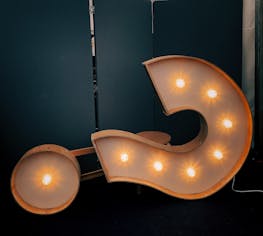Unwinding Anxiety Summary
New Science Shows How to Break the Cycles of Worry and Fear to Heal Your Mind
On a scale of one to ten, how anxious are you? If you scored yourself relatively high, then it might just be time to take a leaf out of Judson Brewer's book. And, it couldn't have come at a better time – a pandemic, and the excessive demands of modern life, have pushed anxiety to unprecedented levels.
Unwinding Anxiety examines anxiety as both a habit and an addiction. By providing an easy-to-follow approach to reducing anxiety, we're shown how to harness the power of rewards, awareness, mindfulness, and empathy.
Maybe anxiety is something that's relatively new to you, and has emerged from a global pandemic? Or perhaps you feel that you've lived with anxiety forever? Whether it's a fairly old or new companion, you're probably aware of the self-sabotaging behaviors you use to cope with anxiety. Maybe you binge on chocolate, light another cigarette, or procrastinate? Perhaps you check the news or Facebook incessantly, or pour your second glass of wine? Intellectually you know these so-called "coping mechanisms" are hugely unhelpful, even damaging, but you just can't seem to break the cycle.
Enter Jud Brewer, MD Ph.D. psychiatrist. Addiction expert, researcher, and associate professor at Brown University. His best-seller Unwinding Anxiety, is a no-nonsense witty book filled with neuroscience, personal anecdotes, and a wealth of practical tools to help reduce anxiety.
We'll briefly explore how anxiety becomes such a bad habit. We'll also learn how to equip ourselves and gear up to break free from today's modern mental plague, and live life to the full.
How Does Anxiety Become Such a Bad Habit?
Before Covid-19, an estimated 264 million people worldwide had a diagnosable anxiety disorder. And understandably, post-Covid, things are getting worse. In April 2020, a study carried out in the USA showed that 13.6 % of respondents indicated severe psychological distress, a 250% increase from 2018, when only 3.9% reported these levels.
Millions of us can identify with these numbers, but what we don't realize is that anxiety is a habit, and a very addictive one at that. However, Brewer is here to help. In Unwinding Anxiety, we learn to understand our brains, and map our habit loops so that we can change them. Brewer teaches us how to break free from destructive habit loops once and for all, with awareness, curiosity, and self-compassion. And fear not, Brewer's advice works. His clinical programs from Yale and Brown University, which incorporate apps to help us break our bad habits, have produced significant results. Results show a 40% reduction in craving-related eating, and a 63% reduction in anxiety, in people diagnosed with Generalized Anxiety Disorder.
The trouble, Brewer says, is that anxiety is a bit like pornography. It's hard to define, but pretty easy to identify when you see it. And worse still, we can't exactly "see" our anxiety. Maybe we wake up worried and continue worrying throughout the day. Or perhaps it arrives without warning in the form of a panic attack in the middle of the night.
Anxiety can be a mild unsettled feeling in the pit of our stomachs, or a severe episode where our heart starts pounding, we break into a sweat, and we feel as if we can't breathe. Or we obsess about specific things or ideas. We may find something fairly innocuous to worry about, and then worry spreads like wildfire. Because it pops up in so many forms and with such differing intensity, Brewer says that this 'Makes it a sticky wicket to diagnose.' The added difficulty is how to treat it, as we all develop different habits to decrease our anxiety, which might have been rewarding for us at some stage in the past, but may have become particularly unhelpful in the present.
Why is the Modern World Making Us So Anxious?
Let's break anxiety down into a simple equation.
Fear + Uncertainty = Anxiety.
Fear is our immediate response to danger, and has been adaptive since the Stone Ages because it helps us survive. We learn to respond to triggers with certain behaviors, because this leads to a result. We call this reward-based learning, and our brain has used it for centuries. The more rewarding the result is, the more it's laid down in the brain, and the stronger the habit is.
So perhaps we can imagine a scenario as follows. Trigger: saber-toothed tiger ahead. Behavior: run in the opposite direction, and fast. Result/reward: survival. Survival is a hefty reward, so we learn to repeat this behavior.
Or on a more identifiable note. Trigger: see yummy food. Behavior: eat yummy food. Reward: feel good.
In both cases, the loop is the same. Trigger. Behavior. Reward. Repeat.
Reward-based learning has incentivized us for centuries, and the more rewarding the result, the more it's laid down in the brain, and the stronger the habit becomes. Over time, our newer brain, our PFC (prefrontal cortex), developed in a layer on top of our older brain. The well-intentioned but less experienced PFC is predictive, helping us plan for the future based on the past. So old brain, and younger PFC work well together for our safety and survival to entrench habits that lead to rewards. Because habits are automatic behaviors, our PFCs can be freed up to think about new things to learn and experience.
This may sound "cool and dandy," but here's the rub. Our PFC needs accurate information to make correct predictions and achieve good results. However, if a situation doesn't present sufficient information to make a precise prediction, we're in a spot of bother.
The more uncertainty there is in future planning, the more our PFC churns out "what-if" scenarios. We're all too familiar with how many everyday situations are uncertain. Take Covid-19. Without accurate information from past experience, and the bombardment of scary details, not to mention fake news, our brains have what our author calls a "big heap of badness" to process. And it puts our PFC in overdrive, sorting through infinite "what-ifs."
Enter anxiety, which doesn't mix well with logic and rational thought. Anxiety thrives on uncertainty, and uncertainty makes our PFCs spiral out of control. Our fear wiring and associated physiological responses are triggered. Our mind-body responses can't differentiate between real danger and the scenarios playing out in our heads. And so anxiety dominates, making us lean into addictive habits to reduce the discomfort.
Unfortunately, the modern world gleefully plays on this addiction, with our slightly out-of-sync brain wiring falling prey to everything on offer. Our environment is great at hooking us into addiction with Intermittent reinforcement (think of the "Like" reaction on Facebook), and immediate reinforcement (clicking a button to buy "must-have shoes" with next-day delivery).
In our weak moments of boredom, loneliness, and hunger, there's always a quick fix – a game, a dating site, constant news feeds, or a new appliance popping up because algorithms have worked out that you shop on a specific website. Brewer says the modern world is killing us because it's creating continuous addictive experiences. Yes, for all of us.
Brewer reminds us that the definition of addiction is 'Continued use despite adverse consequences.' We tend to think of "use" in terms of nicotine or alcohol, but it goes way beyond this. We eat too much chocolate, despite adverse consequences like blood sugar levels and weight gain. We may pine for a lost love, despite harmful effects. We might spend hours computer gaming or scrolling through newsfeeds. Our brains are geared for this kind of reward-based learning, and so we want to do more to feel good, and less of what makes us feel bad.
And here's the thing. Brewer gives us a new way to think about and conceptualize anxiety. Maybe it's also a habit? And a highly addictive one.
So it's time for a pushback. If you understand how your mind works, you can then work with it.
Time To "Hack" Our Brain
It doesn't help to bury anxiety or to over-intellectualize it. So, where do we start? Brewer says it all begins by understanding how our brains work. Sometimes just knowing that our poor PFC is upping the panic because it doesn't have enough accurate information to work on, can help to ease anxiety.
If we know how our brains work, we can hack them. Firstly, we have to recognize that we're getting anxious or panicking, and then take note of what happens. If we can work out our loops, we can hack our brains. Let's look at an example.
One of Dr. Brewer's patients was battling alcoholism and worked out that one of his loops worked like this. The trigger was late afternoon anxiety, which caused the behavior to start drinking. The result was forgetting, numbing, and being intoxicated. Numbness is a result that many alcoholics seek out. It's a reward, albeit a highly damaging one.
We can also apply this to the increasing problem of procrastination. The trigger could be anxiety in the morning from seeing how much work there is to do. The resultant behavior is procrastination, and the reward is avoidance by doing more enjoyable things.
Once we can recognize our loops, we have more agency and become more hopeful that we can change. The first thing we need to do is to map out all the other habit loops linked to our anxiety.
However, here's a warning. We need to come up with new strategies for change. Have you tried to break a habit before? You may have been triggered to see your habit loops more clearly. The behavior is the temptation to try to fix them using strategies you've tried in the past. Unsurprisingly the result is failure.
It's easy to be pulled back into our old habits. There are three traditional strategies that are often touted but may not actually help us to change our loops. They are willpower, substitution, and priming our environment.
The PFC and older parts of the brain typically make a good team. Unfortunately, the PFC is the youngest and weakest member of the brain family, so when we're under pressure, PFC tends to go off-line. Willpower soon follows because it relies on the logical skills of the prefrontal cortex. We might also try to substitute an old habit loop with a new behavior, such as eating candy instead of smoking cigarettes, but this doesn't necessarily change the loop.
So what can we do? We can update the brain's reward value system. And this means replacing outdated and unhelpful behaviors we think are "good" for us, or "rewarding," for one's that actually are beneficial.
Ready To Be Disenchanted?
We pay attention to the results of our actions by being honest about what the "actual" rewards of our anxiety-based behaviors are. So we need to consider if they're worth the short-term relief.
Here's a scenario of an outdated reward-based behavior. After a tough day at work, you get home, open up a packet of chips, and sit down in front of the TV. A while later, most of the chips are finished, and you feel slightly ill. What did your brain do? It had calculated what Brewer calls a "reward value." In this case, the reward value was relaxation, which equated to a packet of chips plus sitting in front of the TV.
Our brains are pretty good at working out reward value, thanks to the orbitofrontal cortex (OFC). This part of the brain combines emotional, sensory, and previous behavioral information into "chunks," which helps to trigger an automatic, habitual response.
The question is, how do we change this? Instead of focusing on the behavior, we just need to focus on the felt experience of the behavior rewards. Brewer argues that this means becoming aware of how valuable that reward is in the actual moment. Awareness is the key to reward-based learning. Our brains need new information to help us realize that the value we had attached to a behavior is outdated. So we need to create a shift by focusing on how our body feels after scoffing too many chips.
It's the same with smoking. This reward value may be made up of old ads of the Marlboro Man, smoking with the cool crowd, and enjoying a bit of rebelliousness. One woman updated her old "reward value" of smoking that factored all of this in, by bringing curiosity and awareness to her "in-the-moment" smoking experience. At that moment, she started to realize that the cigarette, 'smells like stinky cheese and tastes like chemicals, yuck.'
However, we can't update this reward value until we pay attention to that precise moment. We need to realize that the reward value encoded in our brain is different from the actual reward value right now. And this realization brings a handy word to the fore. Disenchantment. When you're disenchanted with the behavior you notice, it seems less exciting. If you connect to how bad the potato chips or cigarettes make you feel, you'll remember this next time.
Realizing this disenchantment means you're starting to hack your brain.
Anxiety and panic attacks can be crippling and prevent us from living to our full potential. It's in our best interest to map out our anxiety loops, and there's a helpful app to assist with this process. The idea is that this is an ongoing process, and we need to keep mapping our loops, asking ourselves if the reward value of each loop is as high as we're led to believe. You'll probably start noticing what you actually get from the habit, and how you really feel, physically and mentally, and realize that the habit isn't all it's cracked up to be.
So what do we do now? We know willpower doesn't always help, and we know that substituting behaviors can sometimes just perpetuate our anxiety loops. This is where mindful awareness becomes key. To step out of our loops entirely, we need to cultivate the skill of mindful awareness.
Cultivate Awareness, Curiosity, and Self-Compassion
Let's start with awareness. Becoming aware of our felt experience in relation to our anxiety-based habits, can help us break free from the loop. However, awareness doesn't mean going down the rabbit hole of "why." We often fall prey to thinking that our anxiety will disappear if we can work out why we're anxious.
Welcome to the loop of being triggered by anxiety – trying to work out why we're anxious, and feeling even more anxious because of this. Our job is to disconnect from the "why," and connect to the emotions and sensations we experience in the present. Brewer suggests that when we notice a "why habit loop" developing, we take three deep breaths, and on each exhale, say, 'Why doesn't matter.'
So if why doesn't matter, then what does? The answer is curiosity. A curious awareness helps us to remain with our anxiety, rather than trying to numb it with a destructive habit. Suppose we can cultivate a kind and curious awareness towards some of our more unpleasant sensations and feelings. In that case, we can calm our anxiety without actually doing something to "fix" the situation.
A RAIN practice is an example of how we can apply awareness and curiosity mindfully. The acronym uses R, to Recognize what's happening now. A is to Allow and Accept without changing it. I is to Investigate the sensations, emotions, and thoughts in a curious way, and N is to Note what's happening in your experience.
Brewer focuses on the N – Noting. We can do this quickly at any stage during the day. Notice which of your five senses you're using, but add two more – feeling physical sensations and thinking. Become aware of which are most dominant at any moment. This can help us see our habit loops more clearly. This practice should be done briefly, but often.
The importance of self-compassion is crucial, as we untangle ourselves from our destructive habit loops. Our negative habits take years to entrench, so trying to break free from the packet of chips habit will take humor, patience, and a growth mindset. As we know from Mindset and Blackbox Thinking, a growth mindset is self-compassion in practice. Know you aren't going to get things right every time, so don't beat yourself up. The key is to remain curious and open to what possibilities change will bring.
In Conclusion
We can all relate to people's difficulties with sobriety, but we don't really think about "anxiety sobriety." For most of us, we can't imagine not being anxious tomorrow.
So, perhaps it's time to tackle our anxiety addiction and the loops it hooks us into, to feel good. Judson Brewer gives us the process to map our outdated loops, hack our brains to update our wiring, and practice our superpowers of awareness, curiosity, and kindness. We have these superpowers at our disposal, and they can make us feel a lot better.
As musician Randy Armstrong says, 'Worrying does not take away tomorrow's troubles. It takes away today's peace.' The first step is admitting that you have a problem, so it might just be time to tackle anxiety addiction.




